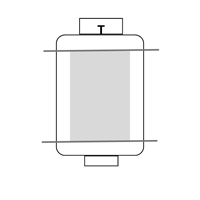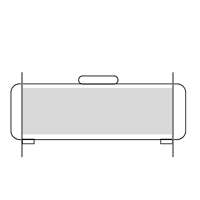The US OXO Difference
Personalized Service
We are your neighbors, not just another large corporation. We understand the needs of our local community because we’re a part of it. Our 20 years of experience has equipped us with the know-how to support your work. We are just a phone call away.
Fast and Responsive
We understand that your time is important, and waiting for tanks and products is frustrating. We provide swift delivery of your products right to your doorstep. You receive your items promptly. We value your time.
Trustworthy Relationships
Our local roots enable us to build strong, lasting relationships with our customers. You’re not just a transaction to us. When you choose US OXO you are getting top-notch products, services, and a friend.
Propane Services
Portable Cylinder Refueling Station

Need a propane refill? We offer a convenient propane refill station for your portable tanks.
Walk In’s Welcome
Pricing & Availability: Call for Pricing
Hours: Monday – Friday, 8 AM – 5 PM
Location: 5512 US Hwy 281 North Marble Falls, TX. We are on 281 Hwy.
Tank Sizes We Refill: Portable propane tanks. (all sizes)
Payment Methods: We accept all major credit cards and cash.
Refill or Exchange: Tank exchanges welcome.
Safety Information: Tanks must be in good condition and up to code for refilling.
Friendly and Knowledgeable Staff: Our team is always ready to assist you with your refueling needs and answer any questions you may have.
Commercial Propane Delivery Service

Reliable Propane Tank Delivery Across the Texas Hill Country
On Site Delivery
Our commercial propane tank delivery service is designed with your needs in mind. We understand the demands of your business and offer:
Dependable and Timely Deliveries: We offer flexible delivery schedules to fit your specific requirements. Call us today for a free quote. – 830-693-5170.
A Range of Tank Sizes: From smaller cylinders to larger bulk tanks, we offer a variety of sizes to match the scale of your operation.
Safety First: Our experienced and certified drivers ensure safe and efficient delivery.
Competitive Pricing: We offer transparent and competitive pricing, providing you with cost-effective solutions.
Local Expertise: We’re based right here in the Texas Hill Country. We understand the unique needs of our community. Expect personalized service – We are a team that’s always ready to go the extra mile.
Reliable Propane Tank Delivery Across the Texas Hill Country
We understand the demands of your business and offer:
-
- Dependable and Timely Deliveries: We offer flexible delivery schedules to fit your specific requirements. Call us today for a free quote. – 830-693-5170.
-
- A Range of Tank Sizes: From smaller cylinders to larger bulk tanks, we offer a variety of sizes to match the scale of your operation.
-
- Safety First: Our experienced and certified drivers ensure safe and efficient delivery.
-
- Competitive Pricing: We offer transparent and competitive pricing, providing you with cost-effective solutions.
-
- Local Expertise: We’re based right here in the Texas Hill Country. We understand the unique needs of our community. Expect personalized service – We are a team that’s always ready to go the extra mile.
Propane Is Typically Sold in Two Ways:

By weight (pounds):
- This method is often used for smaller, portable propane cylinders, such as those used for grills. These tanks are filled and weighed to ensure the correct amount of propane is dispensed.

By the gallon:
- This is the most common method for larger quantities, especially for residential and commercial deliveries to stationary tanks.
- Propane delivery trucks use meters to measure the amount of propane dispensed in gallons.
By Weight – (pounds)
20 – Pound Propane Cylinder Characteristics:
Common Uses and Applications:
-
- Use in Gas Grills, Patio Heaters, Small Generators, Camp Stoves, and Weed Torches.
Capacity and Characteristics:
-
- 20-pound Capacity:
- The “20-pound” designation refers to the weight of the propane the tank holds, not the total weight of the tank itself.
- A 20-pound propane tank holds approximately 4.7 gallons of propane when full.
Refilling and Exchange:
-
- These tanks are typically refilled at propane refill stations or exchanged for full tanks at various retail locations.
33 – Pound Propane Cylinder Characteristics:
Common Uses and Applications:
-
- Construction Heaters, Industrial Uses, Temporary Power, Larger outdoor cooking, (Food Trucks)
Capacity and Characteristics:
-
- These tanks hold approximately 7 gallons of propane when filled to the standard 80% capacity.
- Extended Run Time – Compared to 20-pound tanks, 33-pound tanks provide a longer run time for appliances, reducing the frequency of refills.
- Portability – While larger than the common 20-pound grill tank, 33-pound tanks are still designed for relatively easy transport, though they are much heavier.
Refilling and Exchange:
-
-
- Refilling these tanks can be more expensive than refilling the smaller 20 pound tanks.
- These tanks are typically refilled at propane refill stations or exchanged for full tanks at various retail locations.
-
40 – Pound Propane Cylinder Characteristics:
Common Uses and Applications:
-
- Larger Commercial Grills, (For restaurants, catering services), Space Heaters for Larger Spaces (heating larger garages or well-ventilated commercial spaces, Propane Torches (tasks like roofing, asphalt repair, and weed burning), Capacity and Characteristics:
-
-
- Capacity – Holds approximately 9.4 gallons of liquid propane when filled to the standard 80% capacity.
- Portability – While heavier than 20-pound and 30-pound tanks, a 40-pound tank can still be moved by a reasonably strong adult. It is best moved using a hand truck or within the context of the equipment it powers (e.g., a mobile heater with wheels).
- Valve and Connection – standard POL (Prest-O-Lite) Valve: Typically equipped with a POL valve, which is the common threaded connection for most portable propane appliances. This allows for direct connection to regulators and hoses.
-
Construction:
-
-
- Durable Steel – Constructed from robust steel designed to safely contain liquid propane under pressure.
The tank is built to meet DOT (Department of Transportation) specifications for portable cylinders.
- Durable Steel – Constructed from robust steel designed to safely contain liquid propane under pressure.
-
Refilling and Exchange:
100 -Pound Propane Cylinder Characteristics:
Common Uses and Applications:
-
- Food Trucks – used to power multiple appliances. Industrial Uses such as powering larger forklifts, welding equipment, and other industrial processes,
- Also Backup Power – supplying larger portable generators for extended power outages and
- Residential Use (Secondary) – can be used for specific high-demand appliances like whole-house generators or larger pool heaters.
Capacity and Characteristics:
By the Gallon:
250 – Pound Propane Tank Characteristics:
Common Uses and Applications:
-
- Industrial heating and processes, providing a larger portable fuel source for specific industrial needs, large temporary power generation (fueling larger generators or multiple generators for extended periods, and agricultural uses: (powering larger portable equipment or heating larger temporary structures.
Capacity and Characteristics:
500 – Pound Propane Tank Characteristics:
Common Uses and Applications:
Hot Water Heating (providing a sufficient supply for high-demand water heaters), Cooking, (fueling ranges, ovens, and other cooking appliances at resturamt level, Clothes Drying, (laundromats), Backup Power Generation, (fuel whole-house generators) Pool and Spa Heating, Agricultural Uses (powering certain farm equipment), Small Commercial Businesses: Providing energy for heating, hot water, and other needs in smaller commercial establishments.
Capacity and Characteristics:
1000 – Pound Propane Tank Characteristics:
Common Uses and Applications:
Hot Water Heating (providing a sufficient supply for high-demand water heaters), Cooking, (fueling ranges, ovens, and other cooking appliances at resturamt level, Clothes Drying, (laundromats), Backup Power Generation, (fuel whole-house generators) Pool and Spa Heating, Agricultural Uses (powering certain farm equipment), Small Commercial Businesses: Providing energy for heating, hot water, and other needs in smaller commercial establishments.
Capacity and Characteristics:
Contact Us via Email

